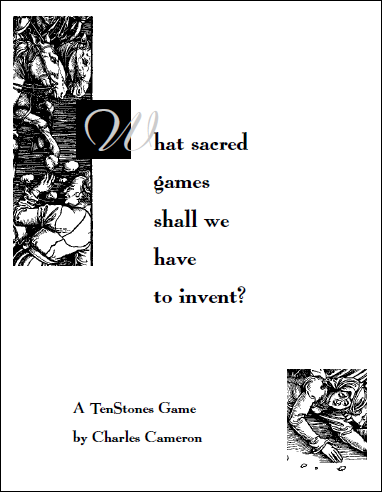[ by Charles Cameron — following a lead from Adam Elkus, a little more on the (Hindu) theological side of the Trinity test ]
.
**
WHen Oppenheimer saw the first nuclear fireball — apart from those supposedly recorded in legend, the sun in the sky, and presumably a whole heavenly host of stars — at the Trinity test in Alamogordo, July 16, 1945, he famously quoted the Indian scripture, Bhagavad Gita, either in his head or out loud:
.
.
This post is to give those who may be interested a brief update on the relevance of that quotation.
I am grateful to Adam Elkus for pointing us to this post on Restricted Data, Oppenheimer and the Gita, which in turn led me to Dr Hijaya‘s paper, The Gita of J. Robert Oppenheimer in the Proceedings of the American Philosophical Society.
**
I have a side note of caution here. Dr Hijaya notes in the Acknowledgments at the end of his paper:
Sanskrit is Greek to me, and Hinduism a mystery. Therefore I am immensely indebted to two scholars who provided me not only with translations of the language but also with innumerable insights into the philosophy: Peter M. Scharf, classics department, Brown University, Providence, R.I.; and Roy W. Perrett, philosophy department, Massey University, Palmerston North, N.Z.
Drs Scharf and Perrett both appear to be well qualified to have advised Dr Hijaya in matters Sanskrit, which seems si=gnificant since — among other things — Oppie himself had studied Sanskrit seriously, and was not simply quoting a line he’d picked up on a cursory reading of the text in some English translation.
Like Dr Hijaya, I have no knowledge of Sanskrit, and like him I relied on the help of other scholars, and particularly Chandra Das, in writing my own commentary on Oppie, various scriptures and the bomb, What Sacred Games? My post for a bloggers’ roundtable on nuclear weapondry in different religious contexts may also be of interest — The religious and apocalyptic background to nuclear policy making.
**
Put into a nutshell, Dr Hijaya notes that the warrior Arjuna is unwilling at first to partake in the battle of Kurukshetra against an army that includes family, friends, and mentors. Krishna, who speaks with divine authority as the avatar of Vishnu, instructs him that it is his dharma or vocation as a warrior to fight, that he should perform actions because they are his to perform, without concern for their results, and that all those who will die in the battle are effectively already dead, since that is the divine will.
From a mortal perspective this is a hard truth to bear, but from the perspective of Vishnu it is appointed, necessary, all part of the divine lila or play — a concept the western Neoplatonist Plotinus expressed thus:
Men directing their weapons against each other- under doom of death yet neatly lined up to fight as in the pyrrhic sword-dances of their sport – this is enough to tell us that all human intentions are but play, that death is nothing terrible, that to die in a war or in a fight is but to taste a little beforehand what old age has in store, to go away earlier and come back the sooner. … Murders, death in all its guises, the reduction and sacking of cities, all must be to us just such a spectacle as the changing scenes of a play; all is but the varied incident of a plot, costume on and off, acted grief and lament. For on earth, in all the succession of life, it is not the Soul within but the Shadow outside of the authentic man, that grieves and complains and acts out the plot on this world stage which men have dotted with stages of their own constructing.
**
One of the topics that should have been mentioned in that 7,000 word post and (irresponsibly?) wasn’t, is the first Indian nuclear test, which if I recall was officially termed “the Buddha’s smile” — an irony both devastating and delicious!
In a follow up post to be completed as time allows, I hope to address that issue.



